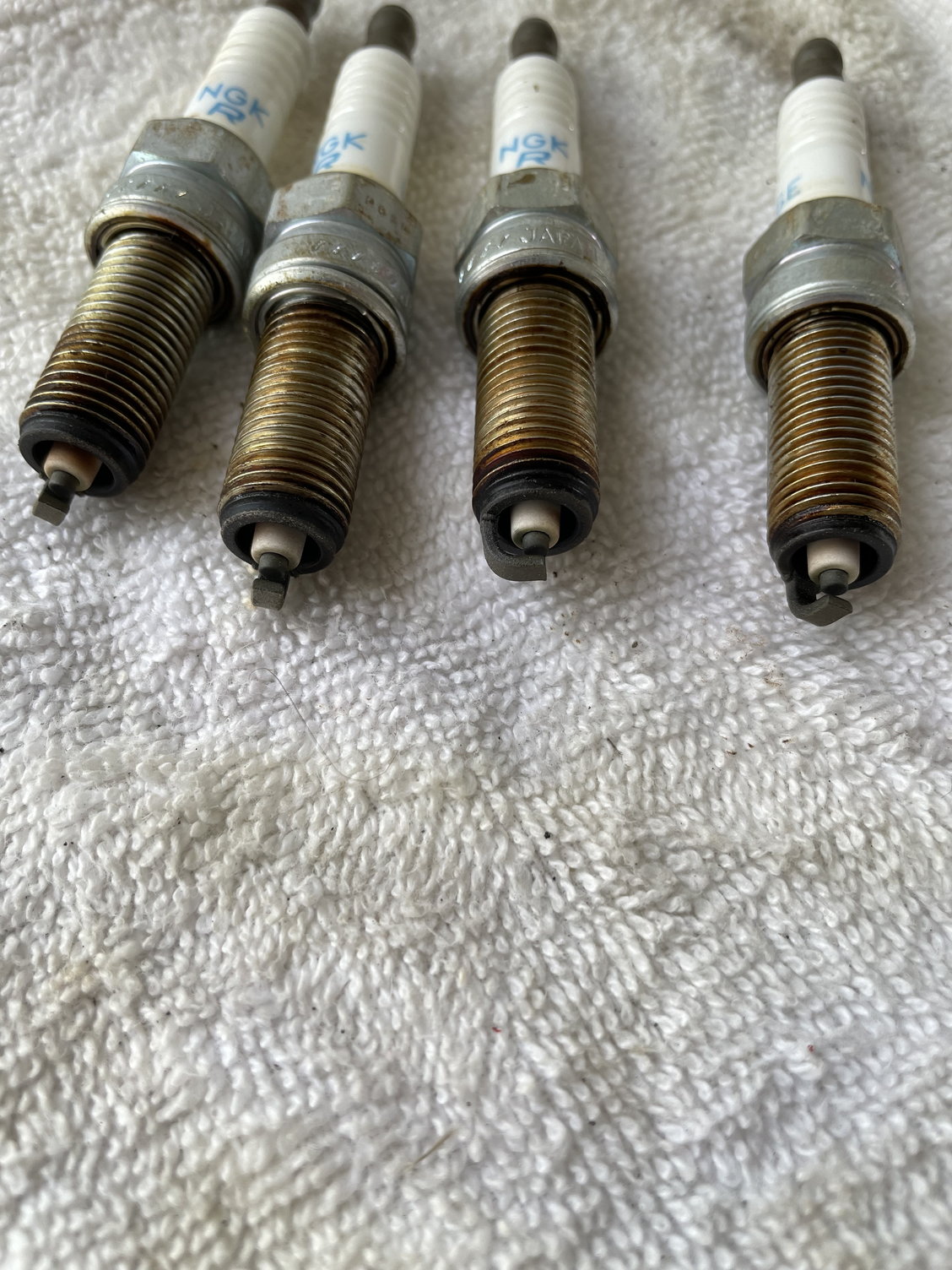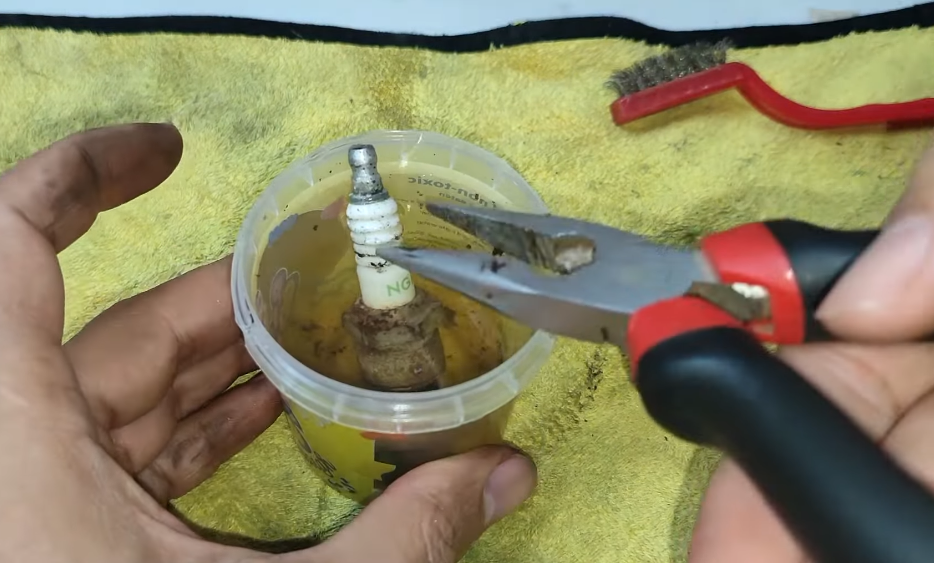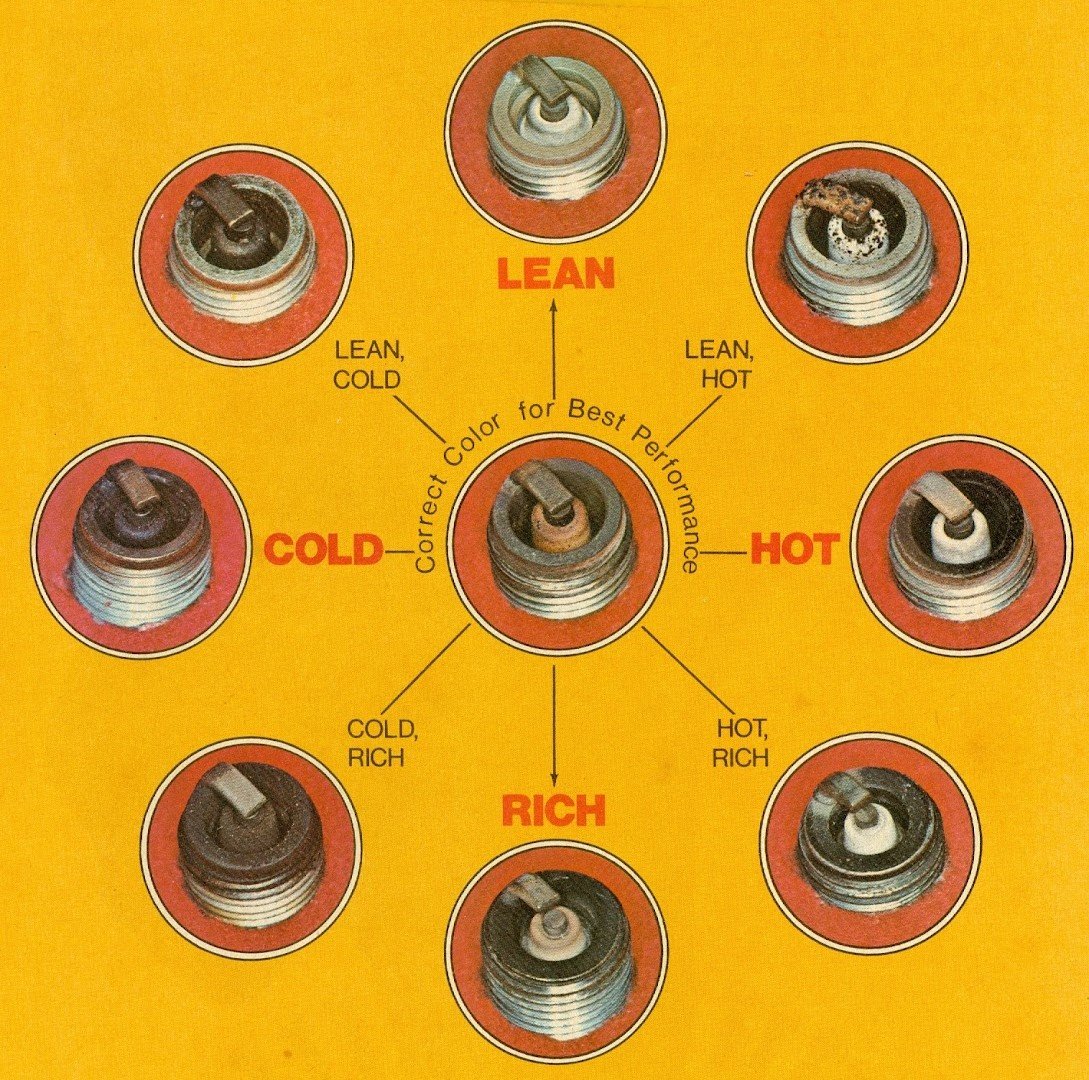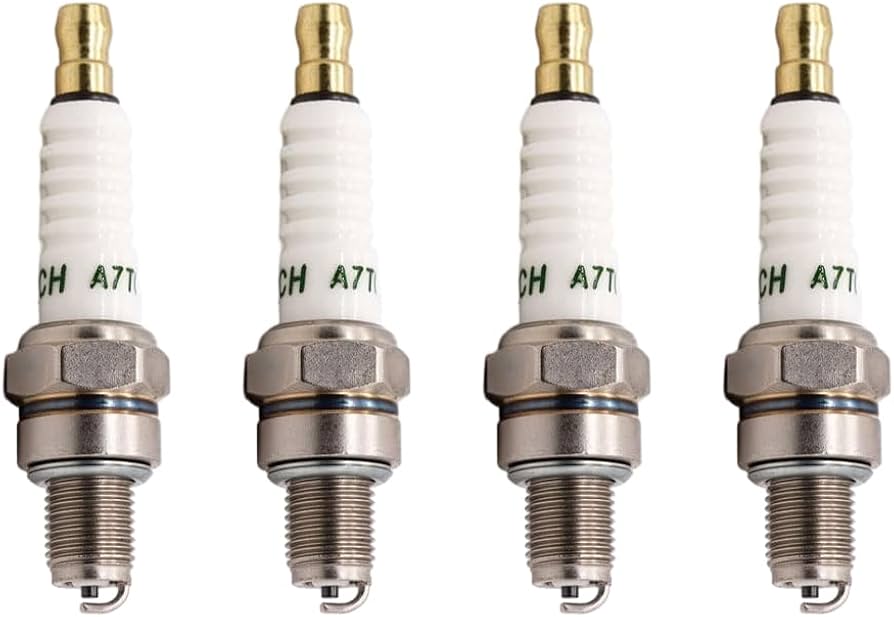Oil on spark plug can indicate a leaking gasket or worn piston rings. Addressing the issue promptly prevents engine damage.
Finding oil on a spark plug can be a sign of underlying problems within your vehicle’s engine. It is crucial to diagnose and fix this issue promptly to avoid potential damage and maintain your engine’s performance. In this blog post, we will explore the causes of oil on spark plugs, its potential consequences, and the necessary steps to address this issue effectively.
Stay tuned to learn how to identify, troubleshoot, and resolve the problems to keep your vehicle running smoothly and efficiently.
Contents
Oil On Spark Plugs Symptoms
If you’re experiencing engine trouble or reduced fuel efficiency, one possible culprit could be oil on your spark plugs. Spotting oil on spark plugs is a clear indication that something is amiss with your engine. Understanding the symptoms and signs associated with the issue can help you identify the issue and take appropriate action.
Engine Misfires
One of the most common symptoms of oil on spark plugs is engine misfires. When oil seeps into the combustion chamber and coats the spark plugs, it can interfere with the spark plug’s ability to ignite the air-fuel mixture. As a result, you may notice a rough idling sensation or hesitation during acceleration. Engine misfires can lead to a loss of power and overall poor engine performance.
Reduced Fuel Efficiency
Another telltale sign of oil on spark plugs is reduced fuel efficiency. When oil contaminates the spark plugs, it hampers the spark plug’s ability to generate a strong spark. This incomplete combustion can lead to wasted fuel and decreased mileage. If you notice that you’re filling up your gas tank more frequently than usual, it may be a result of oil on your spark plugs.
It’s important to address oil on spark plugs promptly, as it can lead to more serious engine problems if left untreated. If you suspect oil on your spark plugs, it’s recommended to consult a mechanic who can diagnose the issue and perform any necessary repairs.

Credit: m.youtube.com
Root Causes Of Oil Leakage Onto Spark Plugs
Oil leakage onto spark plugs can be a concerning issue that affects engine performance. Understanding the root causes of this problem is crucial for effective troubleshooting and maintenance. There are several potential culprits behind oil leakage onto spark plugs, including worn valve seals, damaged piston rings, and faulty head gasket.
Worn Valve Seals
Worn valve seals can lead to oil leakage onto spark plugs. These seals are responsible for preventing oil from seeping into the combustion chamber. When they degrade, oil can leak past the seals and onto the spark plugs, causing misfires and reduced engine performance.
Damaged Piston Rings
Damaged piston rings can also contribute to oil leakage onto spark plugs. The rings create a seal between the piston and cylinder wall, preventing oil from entering the combustion chamber. If the rings are worn or damaged, oil can bypass this barrier and contaminate the spark plugs.
Faulty Head Gasket
A faulty head gasket can result in oil leaking onto the spark plugs. The head gasket seals the cylinder head to the engine block and helps maintain separation between the oil and coolant passages. If the head gasket fails, it can allow oil to escape into the combustion chamber, leading to oil fouling on the spark plugs.

Effective Solutions And Preventative Measures
There are effective solutions and preventative measures you can take to address this problem and ensure your vehicle runs smoothly. In this article, we will explore three key steps: regular maintenance checks, replacing faulty components, and professional inspection and repair.
Regular Maintenance Checks
Regular maintenance checks are essential to identify and address any issues early on. To prevent oil from accumulating on the spark plugs, it is important to regularly inspect the engine for any signs of oil leaks or excessive oil consumption. Here are some steps you can take:
- Check for oil leaks around the engine, paying close attention to the valve cover gasket, cylinder head gasket, and oil seals.
- Monitor your vehicle’s oil levels and ensure they are within the recommended range.
- Inspect the PCV (Positive Crankcase Ventilation) valve and replace it if necessary, as a malfunctioning valve can lead to oil buildup.
Replacing Faulty Components
If you notice oil on the spark plugs, it is crucial to replace any faulty components that may be causing the issue. Here are the key components to inspect and replace if necessary:
- Spark Plug Tube Seals: These seals prevent oil from leaking into the spark plug tubes. If they are damaged or worn out, oil can seep through and coat the spark plugs. Replace these seals if they show signs of wear.
- Valve Cover Gasket: A faulty valve cover gasket can allow oil to leak into the spark plug wells. Inspect the gasket for any signs of damage or leakage and replace it if needed.
By replacing these faulty components, you can eliminate the source of the oil on the spark plugs and restore proper engine performance.
Professional Inspection And Repair
If you have tried regular maintenance checks and replaced faulty components but are still experiencing oil on the spark plugs, it is recommended to seek professional inspection and repair. A qualified mechanic will have the expertise and tools to diagnose the underlying issue and provide the necessary repairs. They may need to perform tasks such as:
- Performing a compression test to check for any internal engine problems.
- Inspecting the piston rings and cylinder walls for any wear or damage.
- Examining the PCV system for blockages or malfunctions.

Credit: rennlist.com
Credit: www.chryslerminivan.net
Frequently Asked Questions
What Does Oil On A Spark Plug Mean?
Oil on a spark plug indicates a leaking seal or worn piston rings. It can lead to engine misfires and poor performance.
Is It Bad To Drive With Oil In Spark Plugs?
Yes, it is bad to drive with oil in spark plugs. Oil can cause corrosion on the spark plug contacts, which can lead to misfires and engine problems. It can also damage the ignition coil and catalytic converter. It’s important to replace any damaged spark plugs and fix the oil leak to prevent further damage.
How To Fix An Oil Fouled Spark Plug?
To fix an oil fouled spark plug, first identify the root cause of the issue. It may be due to worn piston rings, a clogged PCV valve, or a damaged cylinder head gasket. Once the issue is fixed, replace the spark plug with a new one and ensure it is properly gapped.
Regular maintenance and oil changes can prevent future oil fouling.
Will Oil On Spark Plugs Cause A Car Not To Start?
Yes, oil on spark plugs can prevent a car from starting due to disrupted ignition.
What Causes Oil On Spark Plug?
Oil on a spark plug can be caused by a failing gasket or worn piston rings.
Conclusion
Addressing oil on spark plugs is crucial for engine performance. Regular maintenance can prevent issues. Remember, early detection and cleaning are key to avoiding costly repairs. Stay proactive, and your vehicle will run smoothly for miles to come.





